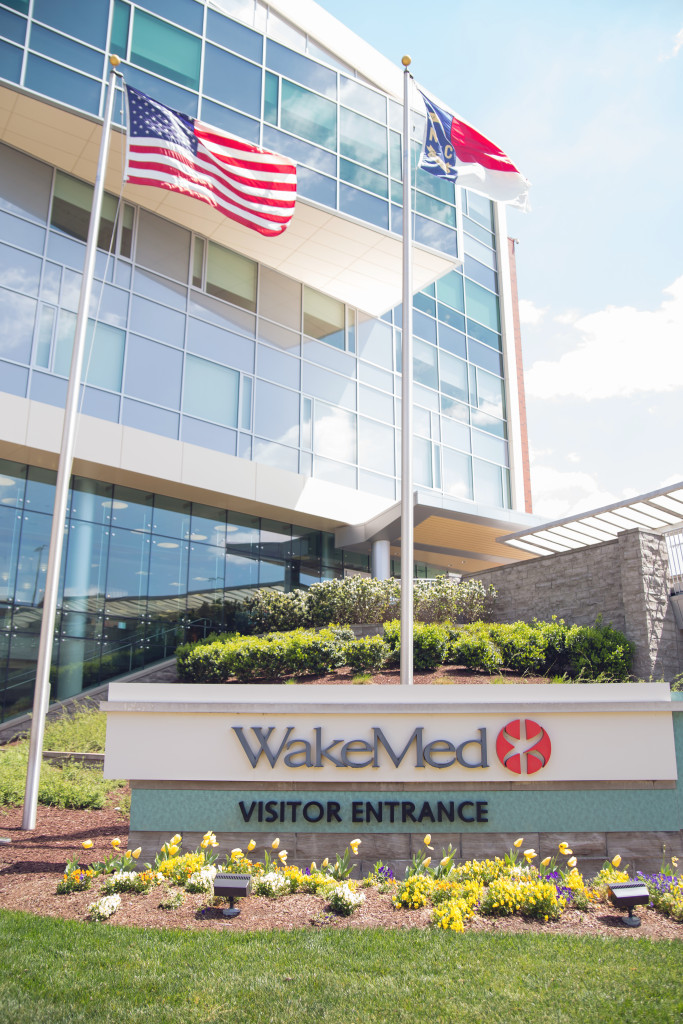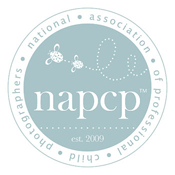Bye Bye Supaventricular Tachycardia | Raleigh SVT

My flesh and my heart may fail, but God is the strength of my heart and my portion forever. -Psalm 73:26
Today I decided to do something brave..super brave for me. I have never even had a C Section, and I guess my wisdom teeth is the closest I’ve been to surgery. So today I had heart surgery to get rid of something super annoying – SVT. Supraventricular Tachycardia sounds really scary, and the first time I had an incident that just wouldn’t stop, I thought it was pretty scary, too. So many of my doctors assured me it wasn’t life threatening and not to worry about it. I wanted to write about it because I’m been too anxious about it to talk about it that much. I also wanted to share everything I’ve learned in case someone else ends up going through the same thing. (SVT is very common) I am not a doctor or expert so definitely check with your doctor if you have it, but I wanted to explain all the things I’ve been through, especially in the last few months.
First of all, SVT is something you are born with – you have an extra electrical connection or a spot where the blood in your heart can get stuck. (Instead of your av node, (which is your pacemaker)making your heart beat, it gets stuck in this spot) It then races around in a circle until you can get it out of that SVT rhythm. I vaguely remember it bothering me in high school when I played sports (I just thought maybe I was out of breath/not in shape because I had not been working out enough) I never thought much about it because when I would sit down, it would go away. I really don’t remember it bothering me in college, but it could have..since almost everytime I have had SVT, it went away quickly, I never thought much about it and didn’t know anything was abnormal.
When I was pregnant, it definitely bothered me. Owen’s pregnancy was way worse anyway, I barely had any time during his pregnancy where I didn’t have something out of the ordinary, but after 20 weeks, the heart racing started. They sent me to the cardiologist, and I wore a monitor for a day maybe, and they said I was fine. I really don’t think anyone mentioned I could have SVT. During Harrison’s pregnancy, it bothered me again around 22-26 weeks. The first time it was awful. I was at a session and was completely embarrassed because it wouldn’t go away. I had never had it bother me for that long of a time, and eventually I had to quit photographing the session. I was so bummed – it was the only time I’ve had to stop a session because of me, I felt like it was my fault, and it totally bummed me out. I didn’t think anything of it because after I sat down for a few minutes, it went away. (plus after Owen’s pregnancy, I knew this was an annoying part of pregnancy for me) It only happened one more time during Harrison’s pregnancy and it was a super quick SVT and went away quickly. I saw the cardiologist again, wore a monitor again, and I really don’t remember anything being said about SVT being a possibility.
About a year after Harrison was born, I had one night with it, and then it didn’t bother me for a while. After that, I got a fitbit charge HR because it calmed my nerves. (Seriously. I would think my heart might be racing and I could look down and see it wasn’t) It never occurred to me though that anything could be wrong..just that maybe my heart would race sometimes, no big deal. Then, in March of this year, I had two SVT episodes that I thought was just a panic attack maybe. I wasn’t sure. So all of this to say, I thought maybe I was sensitive to the little bit of caffeine I drank but I had no idea I could have an arrhythmia . Then, we were at the beach at the end of March this year, and my heart started fluttering alll day. (Fluttering is something entirely different) I went to the ER there because fluttering was something new for me and it scared me because it was all day long.
1.Fluttering could also be called PVCS or ectopic beats. Every cardiologist I saw said that they were benign, maybe I was anxious and needed to relax. Anxiety is one of the things that can cause them (A nurse in the ER at the beach also told me they could be hormonal, which I had my hormones checked a week or two later and they were definitely off) PVCS, ectopic beats or fluttering is separate from SVT. These can happen to anyone and are definitely annoying.
-When you have SVT,you have an ectopic beat (or fluttering or PVC) and then it causes the blood to get stuck in that extra electrical connection spot you have and race around and around. Just because you have ectopic beats doesn’t mean it will get stuck (I was having them all day and no SVT) but you can’t have SVT if you aren’t having ectopic beats. I hope that makes sense!
When I got home from the beach, I went to my cardiologist’s office who said the ectopic beats were probably from anxiety, I needed to relax, they were benign, not to worry about them. I ended up seeing my primary doctor the next week who told me to go back to my cardiologist and get an event monitor. You wear an event monitor for a month, it’s hooked up to a cell phone and you are constantly sending your data to a monitoring center that sends it to your doctor. I wore it for a few weeks. Then one day at the end of April when I was feeling stressed I went for a run. I felt a few ectopic beats and then I felt my heart get stuck in the SVT rhythm. (Heart rate was at 190) It was annoying and wouldn’t go away, I was by myself so I got in the car and thought I would go to urgent care. During this time, my monitor service called to see how was I doing since they must have noticed my arrhythmia on the monitor. (If your heart is bothering you, just go straight to the ER) They ended up calling an ambulance and we waited a while for them to show up.(SVT is not life threatening and if they turn on the lights to the ambulance they can cause wrecks, etc) and when they got there, they just gave me fluid and put me in the truck. They didn’t turn on the siren or anything and drove me to Wake Med North. They were the nicest EMTS, and I was so thankful for them. They didn’t make me feel anxious at all. When I got to Wake Med, they just watched me for a little bit and finally my heart went back into a normal rhythm instead of the SVT rhythm where it’s stuck. (If it doesn’t go back, they can give you medicine that resets your heart and I was super scared and thankful that did not have to happen) Since they had the SVT incident on my event monitor and on an EKG at the hospital, we finally knew I had an arrhythmia. (It is something they really want to catch on an EKG to diagnose.I’m not sure the doctors will diagnose it if they don’t catch it)
What every doctor I saw explained to me was that when you have SVT, you have three options.
- Don’t take any medicine. Don’t worry about it – just try the valsalva maneuver or putting your face in a sink of ice water when you have an episode.
- Take a beta blocker everyday. This lowers your adrenaline, helps with keeping PVCS away.
- Have an ablation and get rid of it.
I got a referral for an electrophysiologist, Dr. Hranitsky at Wake Med. It was going to be almost a month before I could get an appointment, so my doctor’s office put me on a beta blocker to try to keep me from having another episode before then. I was on 25mg of metaprolol and the first three days were just so awful. I was walking around like a zombie…kind of felt like the misery of pregnancy. I could barely get out of bed or eat. I think I lost 6 lbs which is just crazy. I called back up there and they changed my dose to half of that, which was a lot more manageable but took a little while to get used to. It did calm my heart, but it didn’t stop the PVCS. It also lowered my heart rate so that didn’t feel great and it was getting pretty low at night so I kept the event monitor on so they monitored that. Even walking at the gym was just difficult because it kept my heart rate down. (less chance of SVT though so that was good) I was not a big fan of the beta blocker at all, but I didn’t really want to end up in the hospital with an SVT that wouldn’t go away again.
The beta blocker at a higher dose would have probably helped the PVCs go away, but at this low dose, I was still having them. Having PVCs meant I could possibly have an SVT episode if the medicine wasn’t strong enough so I was pretty anxious. So I started reading about PVCS and how to get rid of them. Some of the things that can cause PVCs – alcohol (I can’t really drink away. Half a glass of wine and I’m asleep) caffeine, increased adrenaline from exercise or stress, hormonal imbalances, high blood pressure, and I also started reading about magnesium deficiency.While I was waiting to see the electrophysiologist, I wanted to try to get rid of these PVCS so my anxiety would go down. That was a lonnnnng month of waiting. I didn’t know which arrhythmia I had, and I just wanted to find out. I also hated the beta blocker..wearing a monitor 24/7. It was all pretty annoying.
What helped my PVCS almost disappear (I still have one or two once in a blue moon, but not all day like I was ) – 1. I started whole30. I gradually started it but kicking sugar out made a huge difference in my adrenaline, stress level, and how I felt. I highly recommend It Starts With Food
. It explains in detail what happens every time you eat and how important what you eat is to your body. I didn’t realize how bad I felt everytime I ate and changing my meals made such a huge difference. 2.No more decaf. I was already a decaf drinker, but I had to cut out my one decaf drink a day. This made a big difference. (Some decaf has as much caffeine as a coke) 3.I went to see Dr. Sachar at the Beverly Medical Center and she recommended some supplements + I started epsom salt baths, too, because she explained after having babies, it’s easy to have a magnesium/mineral deficiency. I haven’t read The Magnesium Miracle
![]() yet, but it’s on my ever growing list of what I want to read. I really felt like Dr. Goode and Dr. Sachar are very knowledgeable about PVCS and an awesome resource. They did very thorough bloodwork and found some other things I could be working on with my diet/exercise.
yet, but it’s on my ever growing list of what I want to read. I really felt like Dr. Goode and Dr. Sachar are very knowledgeable about PVCS and an awesome resource. They did very thorough bloodwork and found some other things I could be working on with my diet/exercise.
So, my PVCS went away, which was awesome and I wasn’t stressed about having an episode. I didn’t work out from April – June because some of the time I was on my beta blocker, plus I felt like my adrenals needed to rest. I lost 12lbs from Whole30 and I’ve just kept eating that way so maybe I’m Paleo now? I just love the way it makes me feel..(you can read more about my whole30 here) I was just so glad I didn’t have to deal with the PVCs anymore, because then they made me anxious. May 19th was finally the day of my appointment with the electrophysiologist at Wake Med. He was just so awesome, and Michael and I both liked him instantly. He explained everything so clearly – the PVCS and the SVT. He also mentioned the fact that the SVT is never going away and will probably get worse as I get older. (ugh!) The ablation procedure gets rid of it, and I won’t have to worry about it ever again. Even if I have PVCs (because anyone can have them) my blood won’t get stuck and I won’t have SVT. He was also great about explaining exactly what to do if I had an SVT episode, how to get out of it. (valsava maneuver and put your face in a sink of ice water) He also mentioned again that it wasn’t life threatening. There are a lot of you tube videos out there to explain the valsava maneuver if you have SVT. He told me that I specifically had AVNRT, a type of SVT, and that sleep was so important to keeping SVT (heart racing where the blood gets stuck) away. (Since I was pregnant with Harrison, I have always gone to bed early.Now I know my body really needed it!) He also mentioned the three options to me again 1. do nothing 2. take a beta blocker 3. get an ablation and get rid of it. That day, we decided that I would think about it, and he gave me a short release beta blocker I could take if I had a day where my heart raced and got stuck in SVT. Michael and I talked about it, and I decided to be brave and have the ablation to get rid of it. So what is the surgery/ablation? They go through a vein in your leg up to your heart to get rid of the extra electrical pathway so that the blood can’t get stuck anymore (yay!) I know I will have to lay flat an hour after surgery and then sit pretty still for 4-6 hours. (I will probably watch Gilmore Girls or read. I don’t sit still very well.) After finding out I had this, my mom mentioned it to her friends and several women either had it or knew someone who had it, which made me feel a lot better. It is supposed to be more common in women, but since then I’ve met two men who had the ablation surgery and were so glad they did. I know this is a huge long post, and I hope I did a good job explaining it. I feel like this page explains it pretty well, too. I hope this helps anyone struggling with SVT, and feel free to reach out to me if you have any questions. I have barely told anyone about it because I was way too anxious talking about it (I might would burst into tears) or even trying to explain it when I was right in the middle of everything and still had a lot of questions. I am really thankful for my neighbors who have been encouraging me and taking care of me (They couldn’t help but notice my heart monitor for a month) Since my PVCS went away, I felt a lot better, but I was just ready to get rid of this for good. I had an amazing experience at Wake Med. My nurse prayed with Michael, my awesome brother who drove up at the crack of dawn from Camden, SC, and I before the procedure. My anesthesia team was so great – I was mostly nervous I would wake up and it was the best nap and I had ever had. The whole team I had was wonderful including my recovery nurse. So thankful for such a great experience, and most of all, bye bye SVT!
*updated in 2018 to add that I have not had an SVT episode since my ablation. (yay!)
Rebecca Keller is a Raleigh Newborn and Family Photographer featured in People Magazine and on several blogs including The Bump and Let the Kids Dress Themselves. Because we chat a lot about our personal lives on the blog, we may receive commissions on affiliate links in articles.




.jpg)


.jpg)






Your story gives me courage! I’m scheduled to have my ablation done next Friday. Thank you for sharing!
So so thankful you’re healing up and all the grace and protection the Lord gave you in the process!
You. Are. So. Brave!